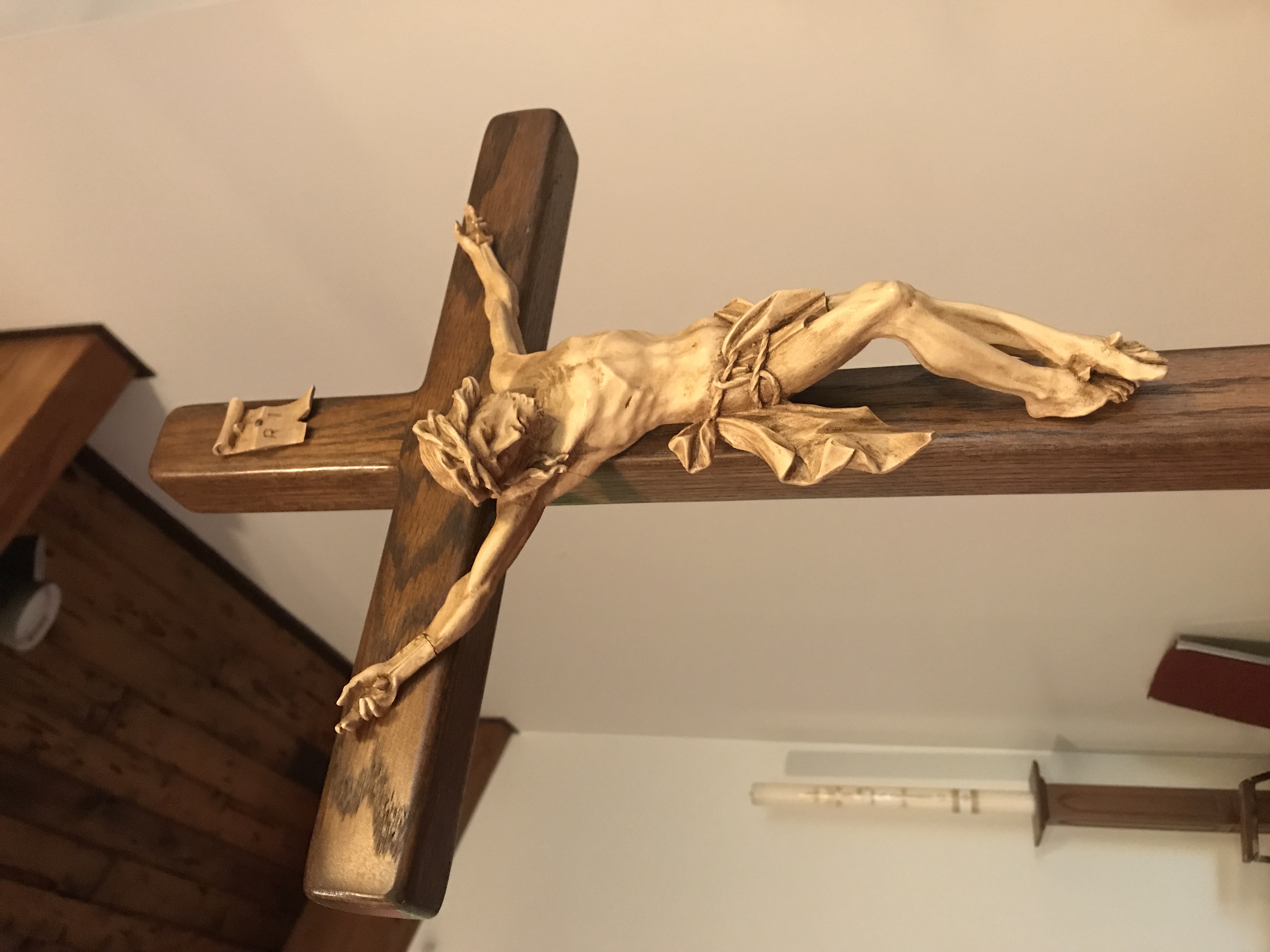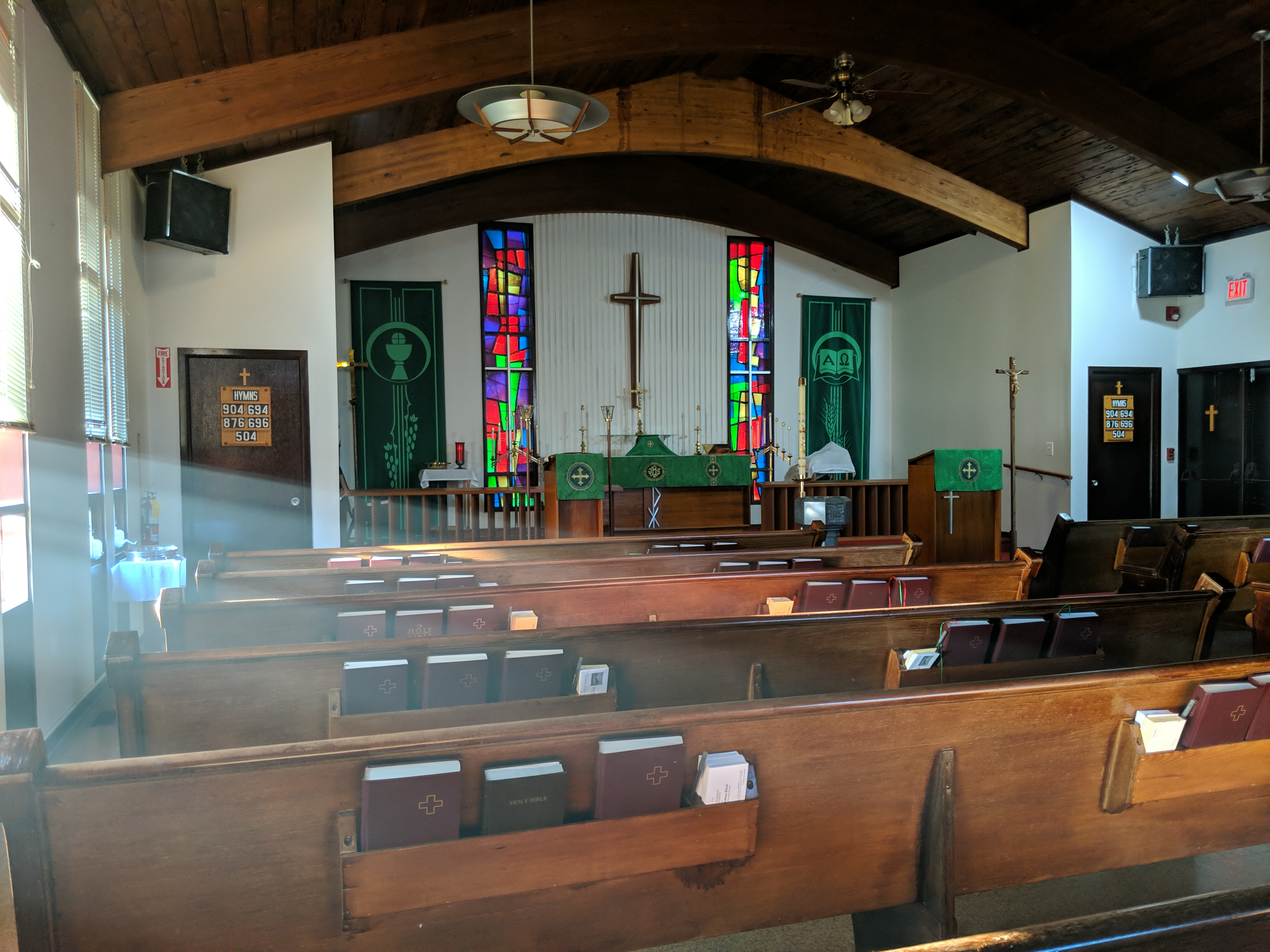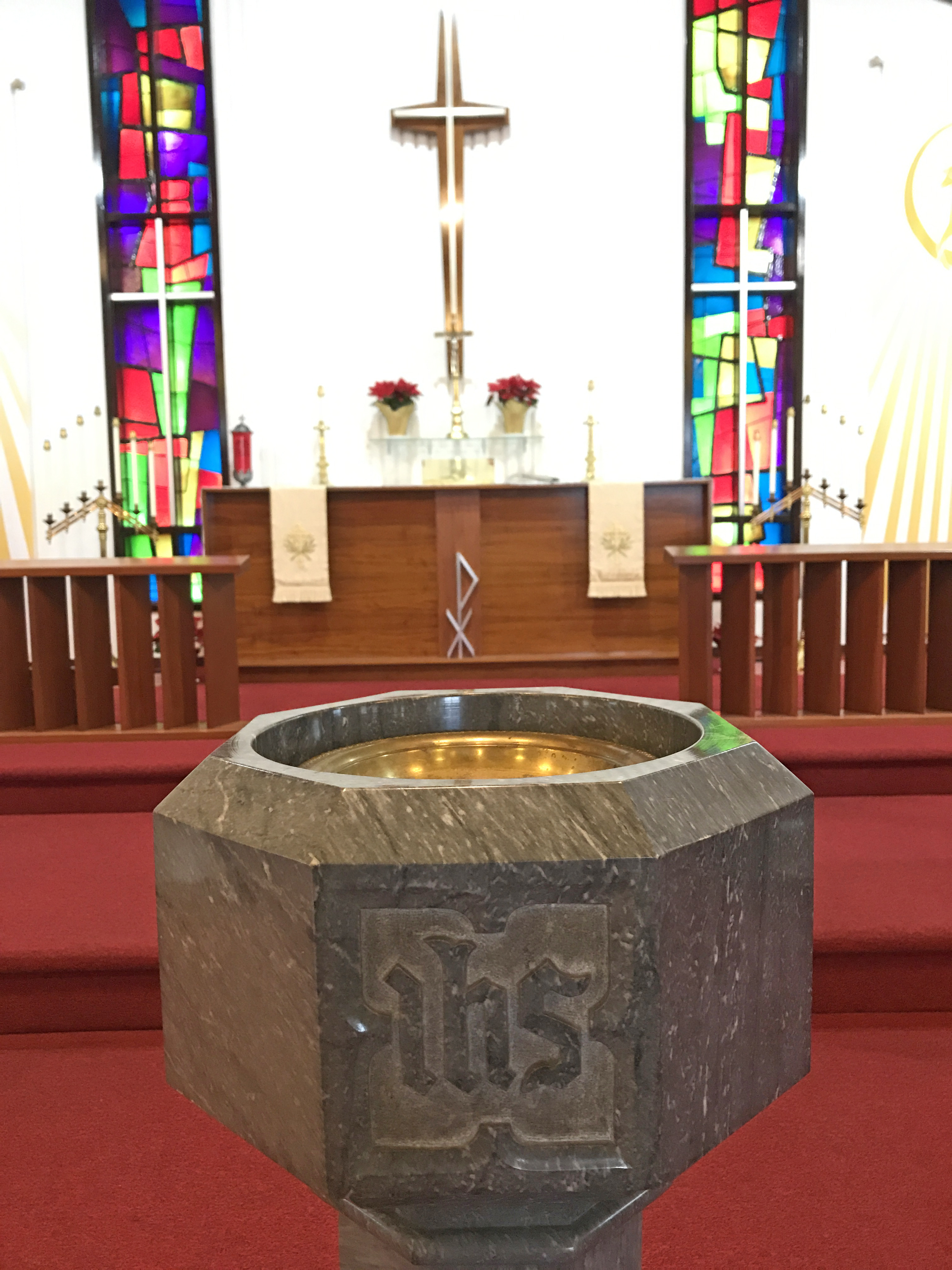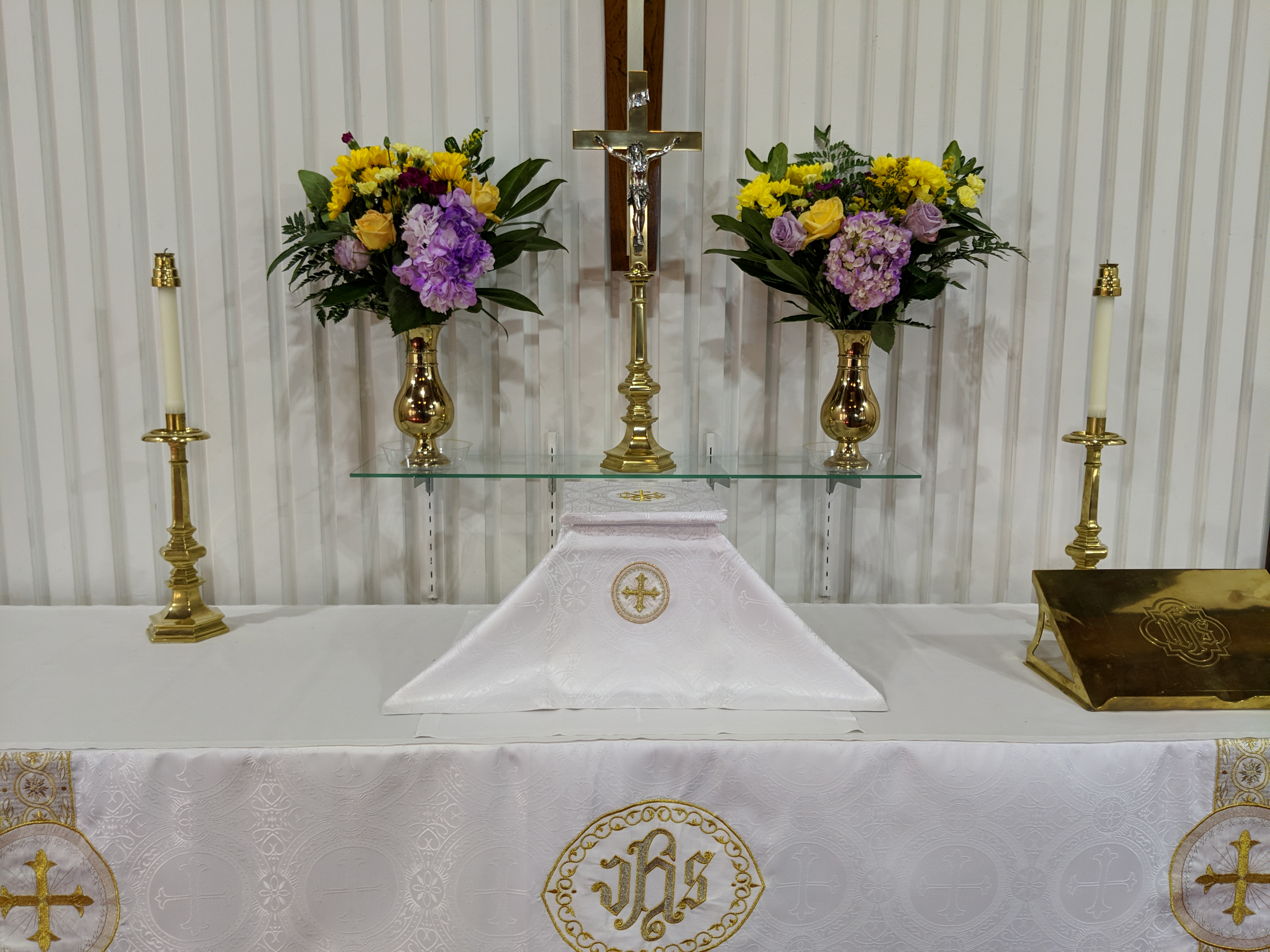The Second Sunday after Trinity – Sunday 9 June A✠D 2024
✠ Psalmody: Psalm 18:18b-19;18:1-2a, 27, 30a;120:1-2;7:11
✠ Lection: Proverbs 9:1-10;1 John 3:13-18;St. Luke 14:16-24
In the Name of the Father and of the ✠ Son and of the Holy Spirit. Amen.
God has instituted a great supper that hasn’t changed over time. His grace is seen in bountiful food and drink set before us at home, at altar, yet we are fed by His hand in countless ways beyond what we chew and swallow and by what we gulp down. His grace abounds, but His forgiveness is given by specific means. When we see the image of a certain man giving a great supper, we are to think of the boundless love of God in how He provides for us entirely in body and soul, but especially in how He satisfies our greatest hunger for forgiveness. From the first moment of creation, the heavens and the earth have been full of the glory of God, even when we corrupted it all and subjected it to the futility of our sin. As a matter of fact, it is when we are most pressed down by the weight of the devil, this wicked world, and our own morbid flesh that our sight becomes sharper, clearer in then seeing the rich supper of grace God has not relented to provide for us. But we are masters of denying truth. We are experts on how to gouge out one’s own eyes. We are skilled professionals at dulling true spiritual hunger by filling ourselves with junk. Only the hungry willingly come to eat in God’s lush fields of forgiveness as opposed to those who stay away full of themselves, seeing no attractive green in the Lord’s pastures of grace.
God’s gifts, as He prepares and serves them as if giving a great supper of peace, are weighed and considered in man’s mind as if they are another option in the mix of all the other things we consume. In our day, our utilitarianism latches onto something’s practicality and how it can serve the needs we see most pressing. Too often, those needs are determined by shallow desires and impulses as if we’ve been trained to respond properly as a corrupted culture’s pet dogs. We measure everything by the pleasure we expect to gain from it, spending blocks and blocks of time scouring reviews to ensure that our list of wanted features is most likely to be gained and our pleasure fulfilled. Our entertainment, one of the many American gods, is setup this way, in that if we don’t like what’s on one channel, we can quickly change to another and another and another or reach for a different device and begin scrolling there. Whether our need is true or is just based on what we think will make us happy in the moment, the focus of our decisions is quite emotion-driven, which clouds a good self-perception of what we actually need to address our concerns in life. If we believe the problems and desires that we can see and feel are our greatest concerns, then we care little about what the Gospel gives to us, and thus excuse ourselves from the supper.
We are right to lament that Church attendance continues to decline, now continuously for decades, and that steady attendance even fluctuates among us. Such treatment of God and His supper is not because He has withheld Himself in His service or that He has spooned up cold, unappealing leftovers at His table. It is because the hearts of people grow cold toward what true gift and happiness is and fill the belly elsewhere with things that perish. Any amount of despising God and His gifts reveals a spiritual issue that easily grows quite dangerous. The parable addresses this very self-malnourishment. God repeatedly lays out a spread fit for royalty, a feast adorned with angel song serving up life everlasting, and we are instead spiritually self-satisfied. When we substitute ideas of self-righteous, I’m good enough by the ways that I think God should be satisfied with, then we do not see our deep need for God’s forgiveness, and thus have no hunger for when and how He says He gives it to us. Those hungry for God seek God’s food.
We conclude that even though God has made it this way since our fall into sin, that He should now not be so stringent as to demand a bloody sacrifice for the sake of true worship of Him. We expect Him to see us making efforts based on our terms and accept them, viewing His gracious invitation only as an intruding demand. Without the shedding of blood, there is no forgiveness of sins. Without the pouring out of life in sacrifice, there is none to be gained by those who have, who need much to gain. The blessed Teller of this parable is He Who came to pour out His life blood for our sake; His Body given into death for our sins; His blood shed for the forgiveness of our sins; deep needs that realized bring about great hunger.
This same gracious Lord taught this parable so that those belonging to His kingdom may be refreshed with the truth of that to which we are ever-invited. It isn’t those who believe and act as if the concerns of this world are of greatest concern, but those who realize that no matter how good or bad all this is, what is most important above all things at all times is our sinful condition and the sweet Gospel that feeds our hungry and thirsty souls.
Just like the field purchased, the yoke of oxen gained, and the wife received in the parable, we are given much by God’s grace in our occupations, possessions, and families. Yet, these are the things that are weighed against the certain Man’s Great Supper and what He offered is deemed to be lacking in comparison. The truth is that what He offers not only shouldn’t, but absolutely cannot be compared with what comes and goes. We are given so much more than to starve ourselves with earthly-mindedness. Church, the Word, fellow Christians, the blessed sacraments aren’t treasures presented to us for comparison so that we may determine whether they are worthy enough to fit into our lives if everything else God has given to us can be shifted to make room. The Gospel is not simply one great treasure among many that hopefully we can find the time for. It is the very thing that makes us what we are. The forgiveness of sins, the great supper of God isn’t something that gets fit into life; It is life. It gives life. It feeds and nourishes true life that endures and brings about everlasting joy, happiness, and satisfaction. God satisfies the hungry soul. Without the great supper of the Gospel and where it is given, there is no life regardless of how much time we spend chasing mirages of joy and meaning elsewhere. So great is God’s forgiveness, so complete is His salvation that in His presence true hunger is not only felt, but it is always truly satisfied. Only in His divine presence do we see the depth of our need while He goes about filling it. It is those who see that they are indeed among the poor and the maimed and the lame and the blind who cherish the bounty of God’s supper. Poor, for we are not able to pay for it, yet Jesus paid for our full forgiveness. Maimed, for this life is harsh, both by our own hands and by those of others. Lame, for we are unable to carry our sin-wracked selves to the perfection we need to have in God’s eyes. Blind, for we are born this way, unable to see lest the Holy Spirit enlightens us with His gifts. All these infirmities, all this true hunger, is fed without price, except of that of the blood of our crucified Lord, a cost only God could afford. Since He has done great things for us, the supper of the forgiveness of sins is forever set before us for us but to come and feast. Thanks be to God for setting an eternal table and for providing the Bread of Life upon Whom we indeed joyfully feast for the forgiveness of sins, all at His own invitation.
In ✠ Jesus’ Name. Amen.















Comments are closed, but trackbacks and pingbacks are open.